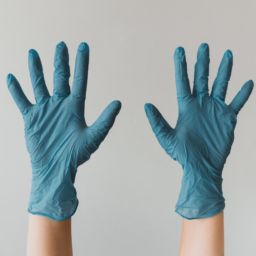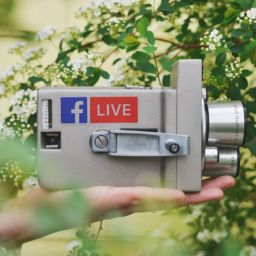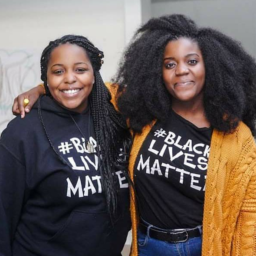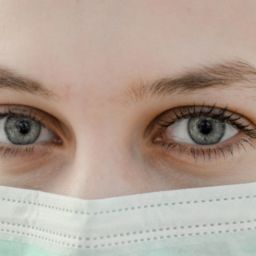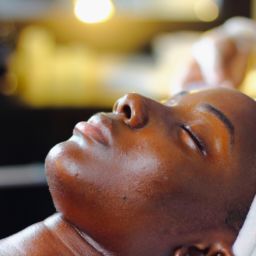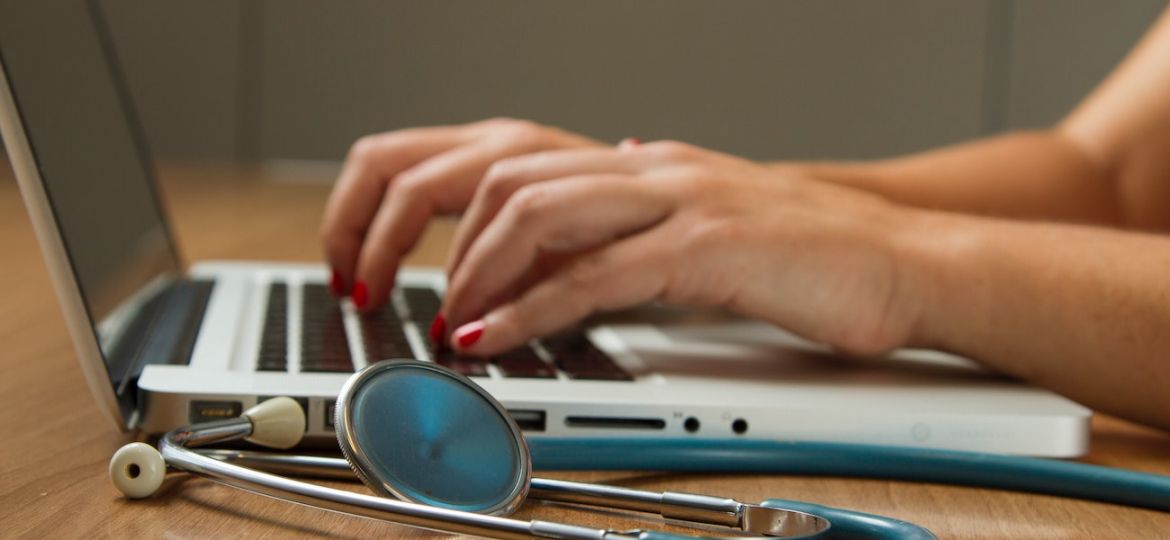
Amy Hemmelgarn is a 20-something physician assistant employed at a hospital in the suburbs of Indianapolis. A graduate of Butler University’s PA Program, recently engaged and a new homeowner, Amy stands at an exciting moment in her life—and an uncertain one. (Indy Maven first spoke with Amy on March 19th and then again on April 6th.)
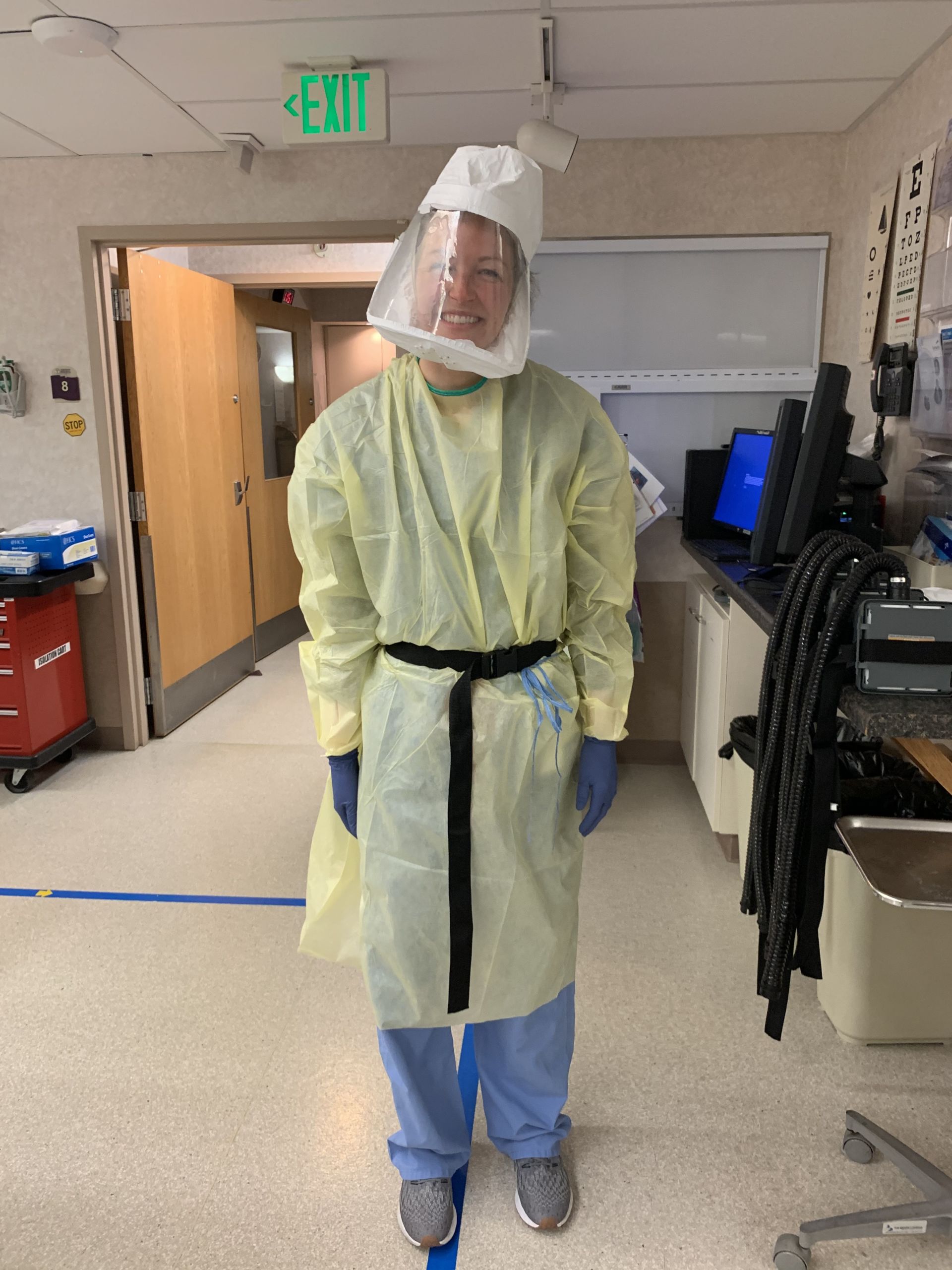 That first interview found her less busy at work. “I’m guessing that people who are really sick are going to bigger hospitals because I’d normally see 15 to 20 patients in a day but yesterday I saw 8 patients.” Her friend at the much larger Franciscan Hospital had about 30 patients admitted that were thought to be potential COVID-19 patients, and “things were really crazy there.”
That first interview found her less busy at work. “I’m guessing that people who are really sick are going to bigger hospitals because I’d normally see 15 to 20 patients in a day but yesterday I saw 8 patients.” Her friend at the much larger Franciscan Hospital had about 30 patients admitted that were thought to be potential COVID-19 patients, and “things were really crazy there.”
In terms of how things have changed at work? “Everything you do is new and you’re questioning whether you’re right.” With the CDC recommendations changing every day, and without the resources to gown up and glove up for every patient with a cough, there is a constant low-grade fear: “Am I doing too much? Am I doing too little? And it just makes every decision harder.”
Her hospital got an announcement on March 18th that someone—no one knows who—had been taking hand sanitizer, masks, and gloves home.
But March feels like a lifetime ago. On April 6th, Amy reported the patient load was increasing. She is treating COVID-19 patients and people are being intubated. “I think the hardest part of [the intubation is], they didn’t have family with them, and it was just heartbreaking and really sad. This 75-year-old man who’s otherwise healthy—a big, strong looking guy—tells me he’s scared.”
There is talk of running out of gowns, but the personal protective equipment (PPE) her hospital uses includes reusable PAPR masks, which are the full coverage air-purifying respirators. So, they won’t run out of those. But, there’s a downside. Namely that the PPE, while she’s grateful for it, is a further disconnect between herself and her patients. She looks like she’s in a big alien suit, “and that part makes me sad, too, because when I’m in with a patient, I don’t even look like a human to them. They can’t see my facial expressions. They can’t see if I’m trying to be sympathetic. All those things are just lost in the PPE and I hate that.”
She leaves work shoes in her car. She showers as soon as she gets home. She’s considering sleeping in a separate room from her fiancé.
In terms of self-care, Amy is meditating. She’s staying off of social media to avoid information overload. She chooses to listen to the “Office Ladies” podcast instead; it makes her happy. Also: crime podcasts fit the bill right now. (She’s not the first person I’ve known who finds reprieve in crime shows.) And she’s letting herself have a good cry.
“I think I’m also trying to recognize that I don’t have any control over it and so all I can do is focus on my part. For me that means on my days off I’m staying at home and on my days at work I’m doing my best to protect myself and remind my co-workers to protect themselves and to just do the best I can for my patients.”
There’s a deeper sense of acceptance for Amy now. “I’m just trying to focus on today and what I can do today.”
In March, she encouraged people to think and act with the community in mind. “I can speak from the place of privilege in that I’m still getting a paycheck, and I can’t understand what it would be like to go without a paycheck. [But] I’m the one who’s exposing myself every day; I’m the one who is going to have to make really hard decisions,” she said. “Everyone is seeing this from a different viewpoint; everyone’s physical, emotional, mental or financial safety is being affected. I’m financially stable but I’m not physically or really emotionally stable at this point. We’re all being affected in different ways so try to think outside of how you’re being affected.”
On April 6th, she told us that the community was doing just that. The hospital is receiving baked goods, meals, cards—she feels supported.
But tears hugged Amy’s crystal blue eyes at one point during the interview. Eyes that carry such sadness and knowing. Thoughts of her wedding, scheduled for August of this year, have been put on the back burner. But that isn’t the source of her sadness. It’s the suffering of her patients.
Maura Malloy is a writer, actor and one-time Tedx Talker living in Indianapolis. Read her other stories with those working through the pandemic here.











